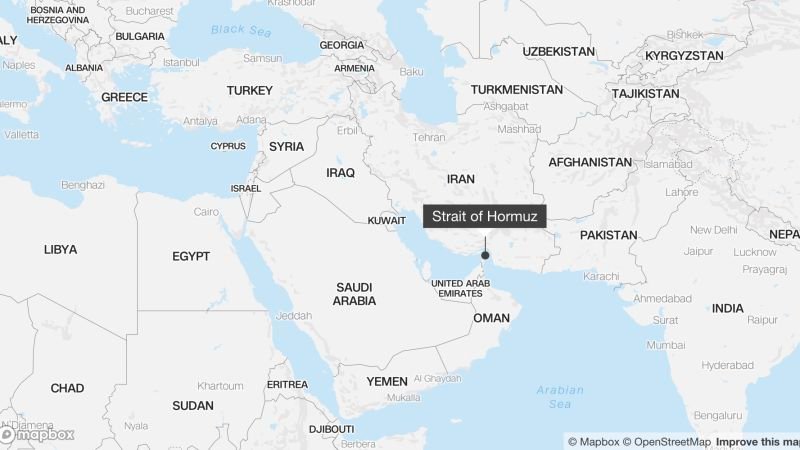Global oil prices have been on the rise recently due to escalating conflicts in the Middle East, particularly the tension between Israel and Iran which could potentially disrupt the flow of oil through the vital Strait of Hormuz. The strait, which is only 21 miles wide at its narrowest point, is considered the most important oil transit chokepoint in the world, with about one-fifth of global oil trade passing through it each day. It also accounts for a significant portion of the world’s daily trade in liquefied natural gas.
As the conflict intensifies, the risk of disruption or even a complete stoppage of oil flow through the strait increases. Iran recently launched missiles at Israel in retaliation for the killing of the leader of Hezbollah, an Iran-backed militant group based in Lebanon. Israel’s Defense Minister stated that the country was preparing to strike back at Iran, raising concerns about potential consequences resembling the oil shock of the 1970s when oil prices skyrocketed due to an embargo by key Arab oil producers.
Despite the rising tensions in the Middle East, oil prices have not seen a significant increase due to concerns about weak demand in China and a global oil supply glut. Since Israel began targeting Hezbollah in late September, the price of Brent crude, the global benchmark, has increased by just over 5% to $77 per barrel. Similarly, West Texas Intermediate, the US oil benchmark, has risen 3.6% to nearly $74 per barrel. However, if trade through the Strait of Hormuz is disrupted, oil prices could surpass $100 per barrel, leading to a surge in gasoline prices.
While the chances of Iran disrupting the strait remain relatively low for now, the unpredictability of Iranian decision-making raises concerns about potential actions in response to Israeli strikes. If Israel were to launch a significant strike on Iranian nuclear sites, Iran may attempt to close the strait, further complicating the situation. The implications of such a disruption could have far-reaching effects on global oil prices and the economy as a whole, underscoring the importance of maintaining stability in the region to ensure uninterrupted oil trade through the strait.
In conclusion, the conflict in the Middle East, particularly between Israel and Iran, poses a significant risk to global oil prices and trade through the vital Strait of Hormuz. Despite modest increases in oil prices, the potential for a disruption in the strait could lead to a sharp rise in prices, impacting gasoline prices and the global economy. The unpredictability of Iranian decision-making adds to the uncertainty surrounding the situation, highlighting the need for diplomatic efforts to de-escalate tensions and prevent any actions that could further destabilize oil markets. Addressing the root causes of the conflict and finding peaceful solutions are essential to ensuring a stable and secure environment for global oil trade and economic growth.

